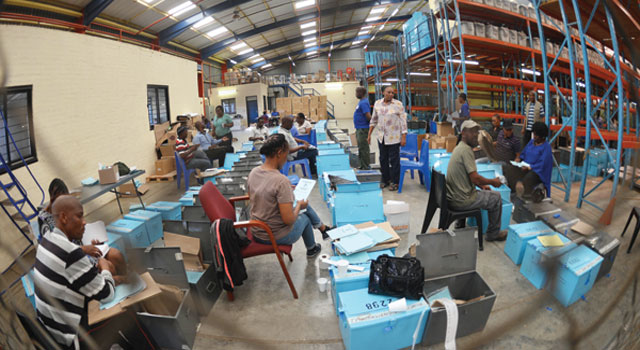- Says manual process has flaws
- More people inspected the voters’ roll than ever before
SESUPO RANTSIMAKO
The Independent Electoral Commission (IEC) says there is a need for total automation of voter registration in order to avoid people being disenfranchised due to information flaws during the registration process.
The IEC made this proposal in its evaluation report on the 2019 general elections in which it attributes problems in the voters’ roll to manual capturing of voter information. “The election roll for the 2019 general elections had some challenges as a result of the manual nature of capturing voters’ information,” it says.
“Some voters had been placed at wrong polling stations and some rejected. However, the commission facilitated voters who turned up at polling stations except those who were rejected in the roll. A long-term solution to this chal-lenge is automation of the regis-tration process.”
The report also states that the IEC experienced “an overwhelming” number of applications for transfer of voters. The total number of transfers stood at 8219 and required a lot of resources to effect. According to the report, voter registration for the 2019 general elections reflected a substantial increase in the number of objections compared to 2014; there were 1472 objections in 2019 against 633 recorded in 2014. “After their determination by courts, 680 voters were struck off from the roll,” the report added.
The official spokesman of the IEC, Osupile Maroba, has buttressed this in an interview, saying introduction of automation was long overdue and that automation would eliminate human error, es-pecially mismatch of voters’ in-formation.
“This normally occurs when there are similarities in location names or numbers,” he explained. “We experienced these challenges in previous years but they were more widespread in 2019 because voters turned up in large numbers to inspect the roll.”

